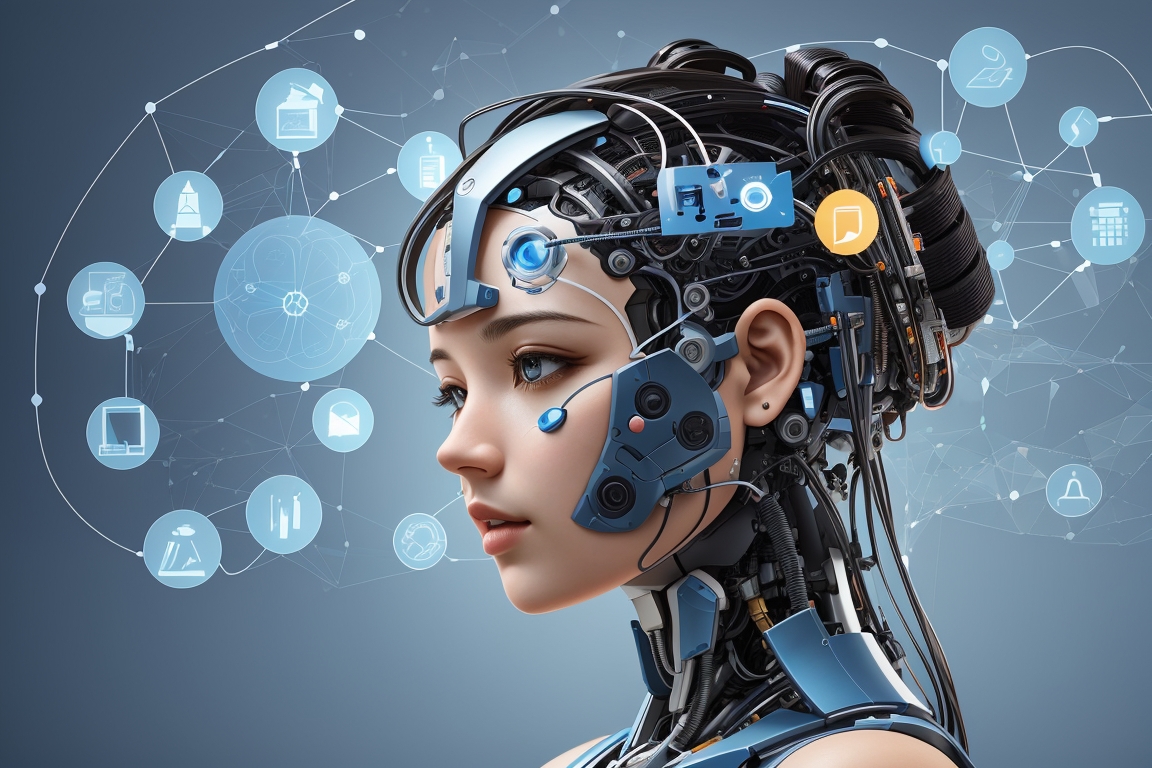Artificial Intelligence (AI) is a groundbreaking technology that enables machines to think, learn, and perform tasks that typically require human intelligence. It encompasses various subfields, such as machine learning, natural language processing, computer vision, and robotics, among others. AI is revolutionizing industries and transforming the way we live and work. In this article, we will explore seven mind-blowing examples of AI applications that highlight its potential and impact across different domains.
1. Virtual Assistants
Virtual assistants, like Apple’s Siri, Amazon’s Alexa, and Google Assistant, are AI-powered AI chatbots that understand and respond to human voice commands. They can perform tasks such as answering questions, setting reminders, playing music, and controlling smart home devices. Virtual assistants utilize natural language processing and deep learning algorithms to continuously improve their accuracy and response capabilities.
2. Self-Driving Cars
Self-driving cars, also known as autonomous vehicles, rely heavily on AI technologies to navigate roads and make real-time driving decisions. They use cameras, sensors, and data analysis to interpret their surroundings, detect objects, and avoid obstacles. By leveraging AI algorithms, self-driving cars aim to reduce accidents, optimize traffic flow, and provide a safer and more efficient mode of transportation.
3. Healthcare Diagnosis
AI has the potential to revolutionize healthcare by enabling more accurate and efficient diagnosis. With machine learning algorithms, AI systems can analyze large volumes of medical data, including images, patient records, and research papers. This helps healthcare professionals in early detection of diseases, personalized treatment planning, and identifying patterns that humans might miss.
4. Fraud Detection
Financial institutions are increasingly using AI to detect and prevent fraud. AI algorithms can analyze vast amounts of data, including transaction history, user behavior, and patterns, to identify fraudulent activities accurately. These systems can flag suspicious transactions in real-time, making it easier for companies to respond swiftly and protect their customers’ financial assets.
5. Image and Speech Recognition
AI has made significant advancements in image and speech recognition. Image recognition AI can accurately identify and classify objects, faces, and scenes in images or videos. Speech recognition AI enables voice-controlled systems and transcription services, making it convenient for users to interact with devices and access information through voice commands.
6. Personalized Recommendations
AI-powered recommendation systems, like those used by Amazon and Netflix, analyze user data, browsing history, and preferences to generate personalized recommendations. By understanding individual preferences, these systems can suggest relevant products, movies, or content, improving user experience and increasing customer satisfaction.
7. Language Translation
AI has transformed language translation, making it more accessible and accurate. Neural machine translation models leverage deep learning algorithms to translate text from one language to another. These AI systems can understand context, idioms, and nuances to provide more contextually accurate translations, enabling seamless communication across language barriers.
Conclusion
Artificial Intelligence continues to push boundaries and reshape industries across various domains. From virtual assistants to self-driving cars to personalized recommendations, AI applications are becoming an integral part of our daily lives. As AI technology continues to evolve, we can only imagine the endless possibilities and innovations it will bring in the future. Embracing AI can unlock tremendous opportunities for businesses, improve efficiency, and enhance the overall human experience.
